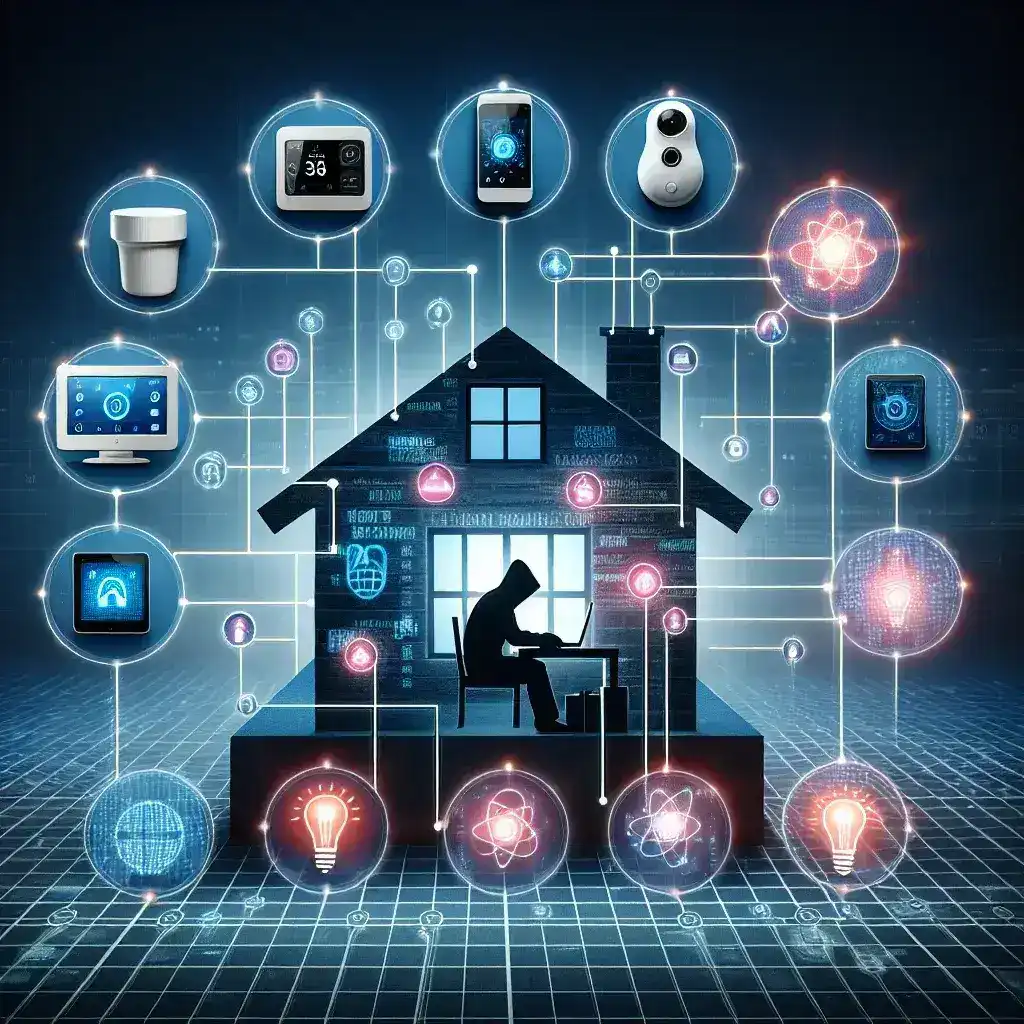Introduction
As home automation systems become increasingly integrated into daily life, ensuring their security has never been more critical. These systems manage everything from lighting and heating to security cameras and smart locks, making them attractive targets for malicious actors. This article delves into the role of hacking in identifying and addressing weaknesses in home automation systems, highlighting the importance of ethical hacking in safeguarding modern homes.
Understanding Home Automation Systems
Home automation systems, also known as smart home systems, leverage internet-connected devices to control and monitor various aspects of a home environment. These systems offer convenience, energy efficiency, and improved security by allowing homeowners to manage devices remotely through smartphones, tablets, or voice-activated assistants. However, the interconnected nature of these systems also introduces potential security vulnerabilities that need to be addressed.
The Role of Hacking in Home Automation
Hacking, when conducted ethically, serves as a valuable tool for identifying and mitigating security weaknesses in home automation systems. Ethical hackers, or white-hat hackers, simulate cyberattacks to uncover vulnerabilities before malicious hackers can exploit them. This proactive approach helps manufacturers and homeowners strengthen their systems against potential threats.
Common Weaknesses in Home Automation Systems
Weak Authentication
One of the most prevalent vulnerabilities in home automation systems is weak authentication mechanisms. Default passwords, lack of multi-factor authentication, and poor password management practices can make it easier for unauthorized users to gain access to the system.
Insecure Communication
Many home automation devices communicate over unsecured networks or use outdated encryption protocols. This insecurity can allow attackers to intercept and manipulate data transmitted between devices, leading to unauthorized control or data breaches.
Software Vulnerabilities
Home automation systems often rely on complex software that may contain bugs or outdated components. These software vulnerabilities can be exploited by hackers to gain control over devices, disrupt services, or access sensitive information.
How Ethical Hacking Identifies Weaknesses
Penetration Testing
Penetration testing involves simulating cyberattacks on home automation systems to identify exploitable vulnerabilities. Ethical hackers use various techniques to breach system defenses, providing insights into how real attackers might gain unauthorized access.
Vulnerability Assessment
Vulnerability assessments involve systematically scanning and analyzing home automation systems to identify potential security gaps. This process helps in prioritizing vulnerabilities based on their severity and potential impact, enabling targeted remediation efforts.
Security Audits
Comprehensive security audits evaluate the entire home automation ecosystem, including hardware, software, and network components. Audits assess the effectiveness of existing security measures and recommend improvements to enhance overall system resilience.
Benefits of Identifying Weaknesses through Hacking
Enhancing Security
By uncovering and addressing vulnerabilities, ethical hacking significantly enhances the security of home automation systems. Strengthened security measures protect homeowners from unauthorized access, data breaches, and potential cyber threats.
Preventing Unauthorized Access
Identifying weaknesses such as weak authentication and insecure communication channels helps prevent unauthorized access to home automation systems. This protection is crucial for safeguarding personal data and maintaining the integrity of connected devices.
Improving System Reliability
Addressing vulnerabilities not only enhances security but also improves the overall reliability of home automation systems. Reliable systems ensure consistent performance and reduce the risk of disruptions caused by cyberattacks or system failures.
Case Studies
Several high-profile security breaches in home automation systems have underscored the importance of ethical hacking. For instance, vulnerabilities in smart locks have allowed hackers to gain physical access to homes, while weaknesses in security cameras have exposed live feeds to unauthorized viewers. These cases highlight the critical need for continuous security assessments and proactive vulnerability management.
Best Practices for Securing Home Automation Systems
Strong Passwords
Implementing strong, unique passwords for all devices and accounts is fundamental to securing home automation systems. Passwords should combine letters, numbers, and special characters, and should be changed regularly to minimize the risk of unauthorized access.
Regular Software Updates
Keeping software and firmware up to date is essential for patching known vulnerabilities and enhancing system security. Regular updates ensure that home automation devices are protected against the latest threats.
Network Segmentation
Segmenting home networks can isolate home automation devices from other devices, reducing the potential attack surface. This approach limits an attacker’s ability to move laterally within the network, enhancing overall security.
User Education
Educating users about best security practices, such as recognizing phishing attempts and securing their Wi-Fi networks, empowers homeowners to play an active role in protecting their home automation systems.
Conclusion
Hacking, particularly ethical hacking, plays a pivotal role in identifying and addressing weaknesses in home automation systems. By proactively uncovering vulnerabilities, ethical hackers help enhance the security, reliability, and trustworthiness of smart home technologies. As home automation continues to evolve, ongoing security assessments and adherence to best practices will be essential in safeguarding modern homes against emerging cyber threats.

